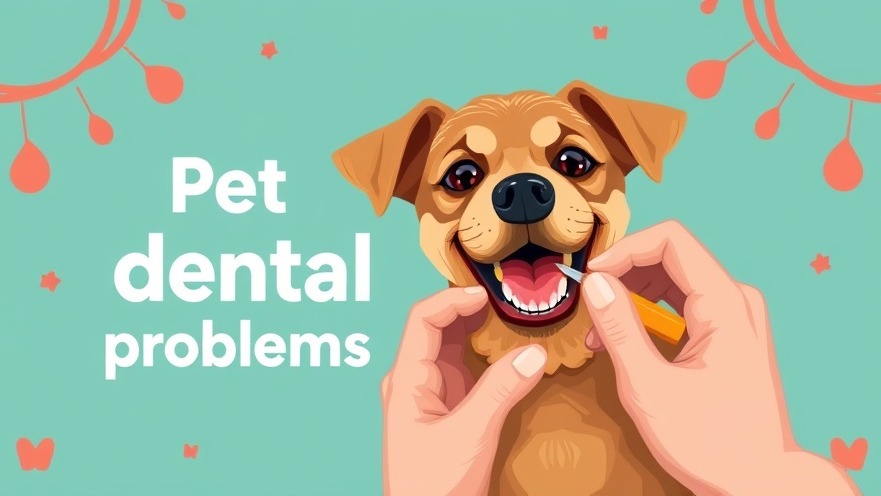
Understanding Your Dog's Gut: Why It Matters
The gut microbiome is not just a trendy term—it’s a vital aspect of your dog's health. This complex community of microorganisms in your pet's digestive tract plays a significant role in digestion, immunity, and even mood regulation. Just as in humans, a balance of gut bacteria contributes to the overall well-being of dogs. Disruptions in this balance can lead to a variety of health problems, from digestive issues to behavioral changes. As pet owners, understanding this relationship is the first step in ensuring your furry friend enjoys a long, vibrant life.
What Causes Gut Disruptions in Dogs?
Many factors can negatively affect your dog's gut health. Dietary changes are chief among them; switching to processed or low-quality foods can lead to dysbiosis, or an imbalance in gut bacteria. Additionally, medications, particularly antibiotics, can drastically alter the microbiome by killing off beneficial bacteria. Stressors—whether due to changes in the home environment, like new pets or moving, or even rough weather—can also impact gut health. Moreover, exposure to toxins from cleaning supplies to harmful plants can add to the burden on your dog's digestive system.
Signs of an Unhealthy Gut to Look For
As dog owners, being vigilant about any changes in your pet's behavior or health is crucial. Common symptoms of gut health issues include diarrhea, vomiting, excessive gas, bloating, and changes in appetite. Behavioral changes, such as increased irritability or lethargy, may also signal underlying problems. Observing these signs early on can help you address potential gut issues before they escalate into more serious health concerns.
Supporting Gut Health: Natural Strategies
Maintaining and restoring a healthy gut microbiome doesn't have to be complicated. Here are several actionable strategies you can implement: 1. Probiotics: Just like humans, dogs can benefit from probiotics. These live bacteria help replenish and maintain balanced gut flora. Consult your vet for recommendations on specific probiotic supplements.
2. Whole Foods: Incorporate a diet rich in whole foods, including lean proteins, fruits, and vegetables. Whole, unprocessed foods provide essential nutrients and selenium-rich antioxidants that support gut lining and overall health.
3. Clean Water: Ensure your dog has access to clean, fresh water at all times to help flush out toxins and support digestion.
4. Regular Exercise: Regular physical activity promotes digestive health by stimulating the gut and ensuring nutrients are properly absorbed.
Consulting Your Veterinarian
Regular vet check-ups are essential for all pet owners. If your dog shows persistent symptoms of gut issues, don’t hesitate to ask your veterinarian specific questions about their gut health. Consider keeping a journal of your dog’s episodes, including their diet, activity level, and any behavioral changes. This record can be extremely useful for your vet in pinpointing potential issues.
The Future of Canine Microbiome Research
Emerging studies are continually shining light on the intricate role of the gut microbiome in canine health. Researchers are investigating how different strains of bacteria affect specific health outcomes in dogs, potentially paving the way for customized diets and probiotics tailored to individual dogs' microbiomes. As a pet owner, staying informed about the latest research can empower you to make the best decisions for your pet’s health.
Conclusion: Take Charge of Your Dog’s Gut Health
Your dog’s gut health is a gateway to understanding their overall wellness. By being proactive about their diet, monitoring their symptoms, and consulting with veterinarians, you can ensure your furry companion leads a happy, healthy life. Make gut health a priority today for a vibrant tomorrow!
 Add Row
Add Row  Add
Add 




 Add Row
Add Row  Add
Add
Write A Comment